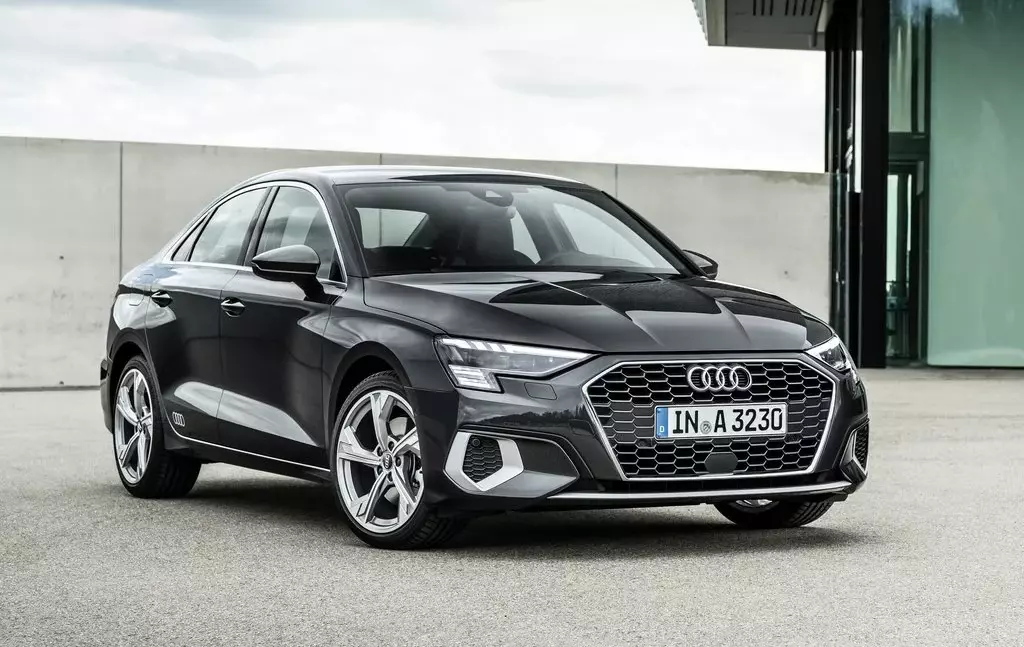The Audi A3 is a nice small luxury car. Due to its high level of safety equipment, solid performance, and all-wheel drive, it is a joy to drive in various weather conditions, even in bizarre snow storms.
Unique features of the Audi A3 include all-wheel drive, traction control, and a specially tuned suspension.
In this article, I will go deeper into the performance of the Audi A3, especially for driving in winter.
Table of Contents
Is the Audi A3 Good in Snow?
The Audi A3 is a terrific vehicle for winter weather. This vehicle’s Quattro all-wheel-drive system allows for superior grip and control in the snow and ice.
The car is equipped with cutting-edge driving aids designed to keep you safe and in command, even in the harshest winter conditions. With a pair of quality winter tires and Quattro AWD, I’m sure the Audi A3 will be very reliable to get through the winter.

Which Audi A3 Features will Improve Winter Driving?
- Quattro all-wheel Drive: When it detects that the vehicle is losing traction, the system automatically applies the brakes and throttles back to mitigate skidding.
- Electronic Stability Control: Winter tires and wheels are designed to give you more grip in the snow and ice. In addition, winter tires and wheels are often constructed from more robust materials and engineered to withstand salt and debris damage.
- Heated Seats: Seats with built-in heaters are a welcome luxury on frigid winter days.
Does Audi A3 Have Snow Mode?
Just like the Audi A4 and A5, the Audi A3 does not have a special mode for snow. The A3 has several modes: Comfort, Sport, Auto, and Individual.
The Comfort driving mode seems ideal for driving on slippery road surfaces such as ice and snow.
In Comfort mode, the system will reduce the aggressiveness of the engine, thereby reducing the possibility of wheel slip during acceleration.
How Much Snow Can Audi A3 Handle?
What’s the Audi A3’s snow capacity? It Depends, The Audi A3 offers front-wheel drive and four-wheel-drive choices, but how much snow it can manage depends on its tires, weight, and topography.
The Audi A3’s snow capability depends on its tires. Normal road conditions are best for all-season tires. All-weather, winter, and snow tires are better at gripping snow. All-season tires are appropriate for mild snow, while winter and snow tires are preferable for harsh weather.
The Audi A3’s weight also affects its snow-handling ability. Heavier automobiles are harder to move in the snow. Therefore, the car’s weight affects how much snow it can manage.
The topography also impacts the Audi A3’s snow capacity. Flat roads are more straightforward to travel on in the snow than mountainous or inclined roads, which may be slippery.
Does Audi A3 Need Winter Tires?

Audi A3 is a terrific winter automobile that requires winter tires to manage the weather. Winter tires improve traction in cold weather and on snowy or icy roadways.
Winter tires are built from softer rubber compositions that can withstand colder conditions. This softer rubber improves traction in wet and slippery conditions.
Winter tires feature deeper treads to improve grip in snow and on icy roadways. The Audi A3 is a superb winter vehicle but requires winter tires to be safe.
In the winter, winter tires provide improved braking. Winter tires have a unique tread pattern that improves braking in the snow and on icy roads.
This reduces the risk of slipping and sliding in the winter.
The Audi A3 is a superb winter vehicle, but it choirs winter tires to be safe.
Is Audi A3 FWD or AWD?
Audi offers the A3 with either FWD or AWD, depending on the buyer’s preference. Most A3s come standard with FWD since it’s more inexpensive and convenient.
It uses less energy and gets higher gas mileage.
Those who don’t need the extra grip that all-wheel drive provides in slick weather can benefit significantly from FWD.
Meanwhile, all-wheel drive (AWD) is an option on some A3 models that improves grip in wet and slippery conditions. As a bonus, it helps the car speed up and turns faster.
The negative is that fuel economy suffers due to the AWD system’s increased complexity and weight.
Audi A3 may be had with either front-wheel drive or all-wheel drive. The choice between the two depends on the individual demands and preferences of the driver.
In addition to increased traction and braking, winter tires enhance fuel economy. Winter tires have reduced rolling resistance, which improves gas mileage. This may cut winter driving costs, which is vital for individuals on a budget. The Audi A3 is a superb winter vehicle but requires winter tires to be safe.
Is the Audi A3 reliable?
The Audi A3 has earned a solid reputation for its dependability, solid construction, and powerful performance.
According to surveys, it has an above-average dependability rating and is also a top performer in JD Power’s Vehicle Dependability Study. The A3 has a solid reputation among its customers and provides excellent value for the money.
Safety ratings for the A3 are among the best in their class. The National Highway Traffic Safety Administration gave it a perfect score of five stars for overall safety, and the Insurance Institute for Highway Safety gave it a perfect score of five stars. Adaptive cruise control, lane-keep assist, and blind-spot monitoring are some driver-support features available.
The Audi A3 offers excellent fuel efficiency for a vehicle of size and weight. Based on EPA estimates, it achieves 24 mpg in the city and 34 mpg on the highway. It’s available with either a 1.4- or 2.0-liter turbocharged four-cylinder engine. Both engines are powerful and quick while still being quiet and comfortable to drive.
Conclusion
When it comes to snow and other winter driving conditions, the Audi A3 is a great option. The Quattro all-wheel-drive system and other modern safety systems assure the safety of the driver and passengers in all weather.
It’s an attractive option for individuals trying to save money and time due to its sumptuous cabin and economic engine.
When it comes to driving in the snow and cold, the Audi A3 is a safe and pleasant option.



